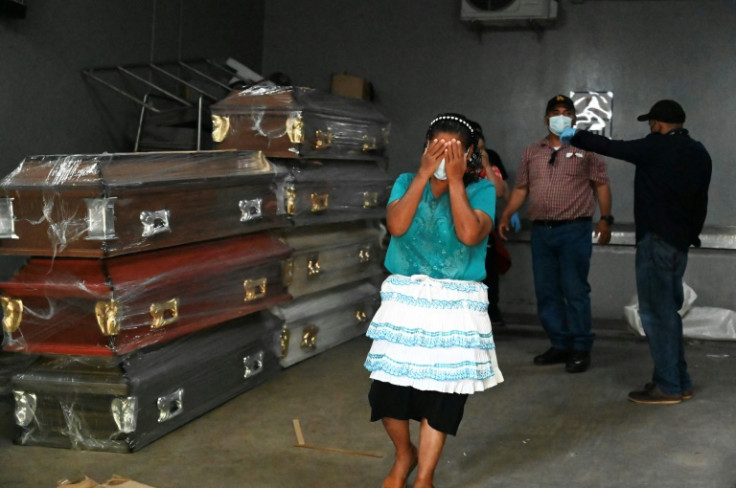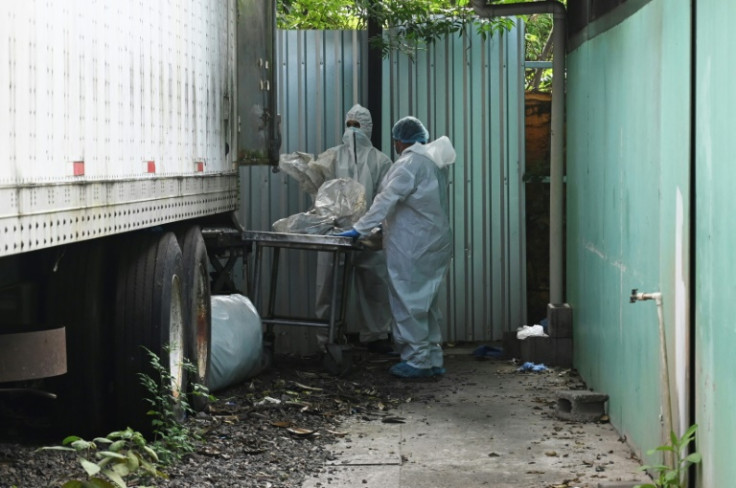Honduras Women's Prison Violence: Death Toll Rises To 46

The death toll from a fire and clashes between rival gangs at a women's prison in Honduras has risen to 46, the prosecutor's office said Wednesday, as the first bodies were handed over to mourning families for burial.
The violence erupted at a prison about 25 kilometers (15 miles) north of the capital Tegucigalpa on Tuesday, when members of a gang burst into an area housing a rival group, shot at them with heavy-caliber weapons, and set the place on fire.
Part of the prison was "completely destroyed" in the blaze, Delma Ordonez, who represents inmates' relatives, told media.
On Wednesday, the prosecutor's office upped the confirmed death toll from 41 to 46. It was still unclear if all the victims were inmates.
The CEFAS correctional facility in Tamara held about 900 prisoners, according to Ordonez.
A spokeswoman for the Forensic Medicine Directorate, Issa Alvarado, said 23 of the bodies had been identified by Wednesday morning and handed over to relatives.
Identification was continuing "in complex cases," the prosecutor's office said on its Twitter account.
Most of the victims died in the fire, while some of the bodies were riddled with bullets, a spokesperson for the prosecutor's office, Yuri Mora, told AFP on Tuesday.
Honduran President Xiomara Castro said Tuesday she was "shocked" by the "monstrous murder of women in CEFAS by gangs in full view and tolerance of security authorities."
A state of emergency was announced, and Castro dismissed security minister Ramon Sabillon.
Honduras is a country wracked by corruption and gangs that have infiltrated even the top levels of government.
Along with neighbors El Salvador and Guatemala, Honduras forms Central America's so-called "triangle of death" plagued by the murderous gangs called "maras" that control drug trafficking and organized crime.
Drug trafficking groups and gang members are largely responsible for the soaring rate of homicides in Honduras, which at 40 murders per 100,000 inhabitants last year was four times higher than the world average.
Many young people have given up hope of a better future and seek to migrate to the United States.
Honduras is a major transit country for Colombian cocaine and other narcotics headed mainly to the United States.
Former Honduran president Juan Orlando Hernandez was extradited to the United States on drug charges in April 2022 -- just over a year after his brother Tony was sentenced in New York to life in prison.
US prosecutors say Hernandez turned Honduras into a "narco-state" involving the military, police and civilians in drug trafficking.
Castro, the country's new leftist president, has vowed to tackle criminal gangs, last year temporarily lifting constitutional guarantees to allow police to make arrests without warrants.
One objective of the crackdown, Castro said, was to rein in rampant extortion by gangs.

© Copyright AFP {{Year}}. All rights reserved.





















